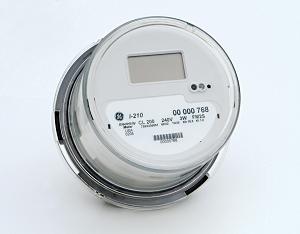The British government’s National Audit Office (NAO) today published a less than glowing report into the Department of Energy and Climate Change’s (DECC) smart meters roll-out.
The NAO, an independent Parliamentary body which scrutinizes public spending, highlights a number of concerns about the cost-effectiveness of DECC’s £11.3 billion ($18.1 billion) programme to install 53 million gas and electricity smart meters in 30 million homes between 2014 and 2019.
Preparations For The Roll-out Of Smart Meters calls into question the basis for the smart meter roll-out, i.e. greater energy efficiency and cheaper bills for consumers, criticizes DECC’s lack of engagement with the British public to encourage the use of smart meters, and warns the rapid pace of change could render some smart metering technology obsolescent during the roll-out programme.
In essence, the NAO concludes that unless DECC reviews its plans, the roll-out is in danger of becoming a white elephant with ballooning costs.
DECC estimates dual fuel customers will save £23 a year by installing gas and electricity smart meters. The estimated savings are based on the assumption that end-users reduce consumption of both electricity and gas by between 2 and 4 per cent and move around 10 per cent of consumption to off-peak times via time-of-use tariffs.
The NAO report notes, however, that a five-year smart meters trial conducted by DECC was inconclusive and showed that there is little appetite among British consumers to bother with smart metering for what are very modest benefits. Furthermore, says the financial watchdog, Britain’s Byzantine tariffs system is seen to inhibit customers from choosing the most appropriate tariff for their energy usage and there is a risk that even these modest benefits will not be realized.
The report concludes: “In particular, there is uncertainty over consumer benefits, which arises because international experiences and domestic trials together provide limited evidence to support particular assumptions about how much and for how long consumer behaviour will change.
“There is also the risk that costs increase more than DECC has provided for; major technical and logistical challenges to delivering a fit-for-purpose and secure system; and a risk that suppliers do not pass on all the net savings to their customers. DECC must commit to keeping its estimates of costs and benefits under review and provide clear decision points at which it will judge whether to progress with the programme as originally designed or to make changes to protect public value.”
The report also recognizes that installing smart meters to 97 per cent of the British population in just five years in itself is a huge challenge, particularly as the physical roll-out will be conducted by utilities on a customer-by-customer basis, and not by Distribution Network Operators on a street-by-street, city-by-city basis.
The report also raises concerns about security risks, such as theft of data and cyber-attacks, arising from the collection of energy consumption data from every household and transferring it to suppliers or other authorised parties through a central communications network. The NAO recommends DECC does more work into looking into these risks.
Margaret Hodge MP, chair of the UK Parliament’s committee of public accounts, said that while smart meters would reduce energy consumption, the £11.3 billion cost represented poor value for money.
“For the money spent to provide value, we all have to change the way we behave, ” said Hodge. “It is not clear how DECC will stimulate this behaviour change. And, as technology changes, DECC will have to be properly flexible to respond with up-to-date technology for the smart meters. These uncertainties can drive up costs more than planned.
“We will keep a close eye on project progress, and would urge DECC to address the risks identified in this report.”
DECC is under no illusions that the programme is a huge undertaking and is taking on 100 extra staff to manage the roll-out. MM wishes them the very best of British luck.
The full report can be downloaded here: Preparations For The Roll-out of Smart Meters

Discussion
No comments yet.